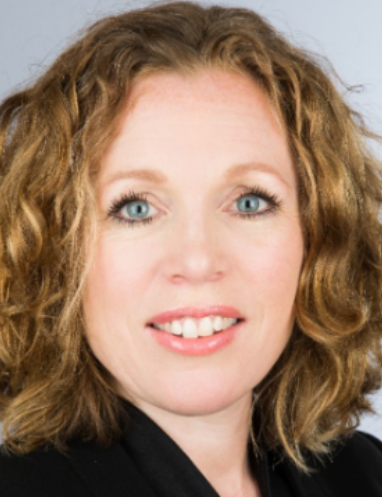The future of regulation is technology: That’s the word from Jo Ann Barefoot, CEO and co-founder of AIR, the Alliance for Innovative Regulation. Ms. Barefoot is also the host of the global podcast show Barefoot Innovation; cofounder of Hummingbird, a technology startup helping financial institutions investigate suspicious behavior; and Senior Fellow Emeritus at the Harvard Kennedy School Center for Business and Government. She’s also been Deputy Comptroller of the Currency at the U.S. Office of the Comptroller of the Currency, a partner at KPMG, Co-Chair of Treliant Risk Advisors and a staff member of the U.S. Senate Banking Committee. I had the pleasure to speak with Ms. Barefoot for the Risky Women Radio podcast series.
“My career has been marked by finding situations where there was a big thing to do — either to start something new or transform something,” Ms. Barefoot said. That theme involved taking a lot of risks. Ms. Barefoot told us about the single biggest risk she took in her career: “I stepped away from my career to work on writing a novel. I was well-known in my field … but a number of events converged to make me think it was time to try to do something different. … When I came back a few years later, I was at a much higher point in terms of my ability — because I had taken that detour.” She added that breaking silos is advice she gives often: not to stay inside a narrow pathway but to try different things. “The speed of innovation is driving such fast change that you have to have a collaborative environment. You need to be drawing from other places to be sure that what you’re doing is on track. So, I really recommend [engaging] that right-brain creative side … if you’re a lawyer or working in technology, add the arts; mix it together.”
Our conversation turned to one of Ms. Barefoot’s current endeavors, the Alliance for Innovative Regulation, or AIR. “As humans we tend to underestimate it: Technology is transforming everything in our lives. And financial services, financial risk management and financial regulation are all undergoing transformation due to the move from the analog to the digital age.” Those sectors have always been innovative, but what’s happening now is different, she added.
It’s not just evolutionary change; it’s completely different technology. AIR helps the financial, regulatory, compliance and risk management sectors keep current with technological innovation. That includes technology in the financial services industry, in regulators’ oversight of that use and also in regulators’ own use of technology in oversight activities. “Exponentially changing technologies have a hockey-stick shape where things change gradually for a long time; then change accelerates suddenly and spikes upward. I worry that financial risk management [and] regulators — and financial companies for that matter — will find themselves under that curve as that vertical shift starts. If you haven’t kept up, you may never catch up.”
Ms. Barefoot was excited that AIR won a World Changing Idea Award from Fast Company magazine this year. “When you think about the arcane nature of financial regulation, we thought it was great that Fast Company could see that ours is a world-changing idea. If we can get this right, we can have a financial system that will be more fair, more accessible, more affordable, more efficient, more stable, more green. I mean, you name it — the technologies that are coming can just do massive good if we get them right!” Where to focus energy? “Better technology to find financial crimes. The United Nations estimates we catch less than 1% of several trillion dollars’ worth of annual financial crime.” Other priorities she sees include credit accessibility: developing new ways to underwrite credit and using data and artificial intelligence to fine-tune the risk evaluation of applicants who may be screened out by traditional tools.
Ms. Barefoot described work going on in digital regulatory reporting (DRR), to get the information that regulators and risk managers need into digital form. “A system of digital reporting could save billions per year in generating reports — and give better data to the regulators as well.”
Another far-reaching set of initiatives concerns machine-readable regulations. “Regulators are developing taxonomies of rules that will enable machines to recognize what the regulation covers and requires.” Even more ambitious is machine-executable regulation, where regulators could issue changes as computer code to produce instant compliance. “These tools … will be in our daily lives as risk managers in the next few years in some form,” Ms. Barefoot commented. “All of the information is going to become digital. And once it is, whether you’re a risk manager or a regulator, you’ll be able to use tools to get the information out of data in real time and massively improve how we do risk management.”
Risky Women Radio connects, celebrates and champions women in risk, regulation and compliance. The series shares insight and perspectives from members of the global Risky Women network and brings together hundreds of senior women professionals with a new emerging group of leading women and men. Risky Women Radio is available on Apple Podcasts, Google Podcasts, Spotify and RSS feeds. You can listen to the full audio of our conversation here. You can also learn more about Risky Women by visiting its website.





